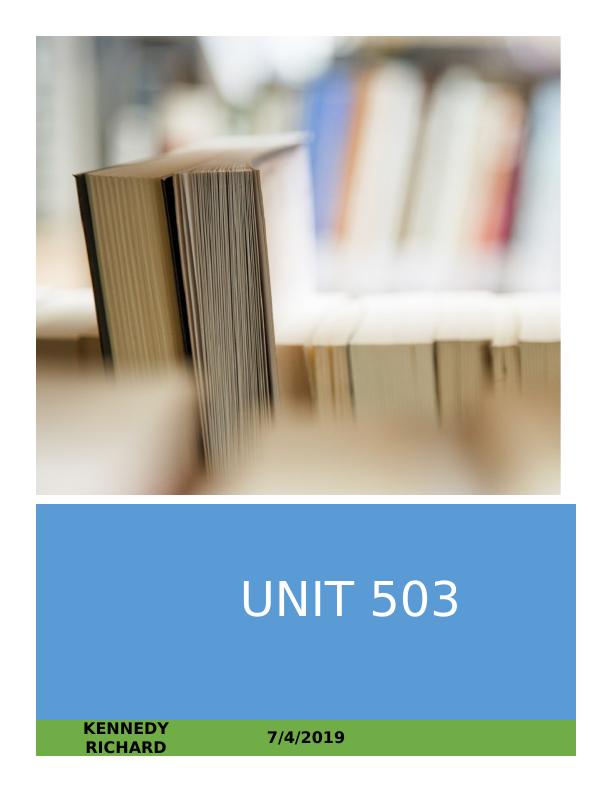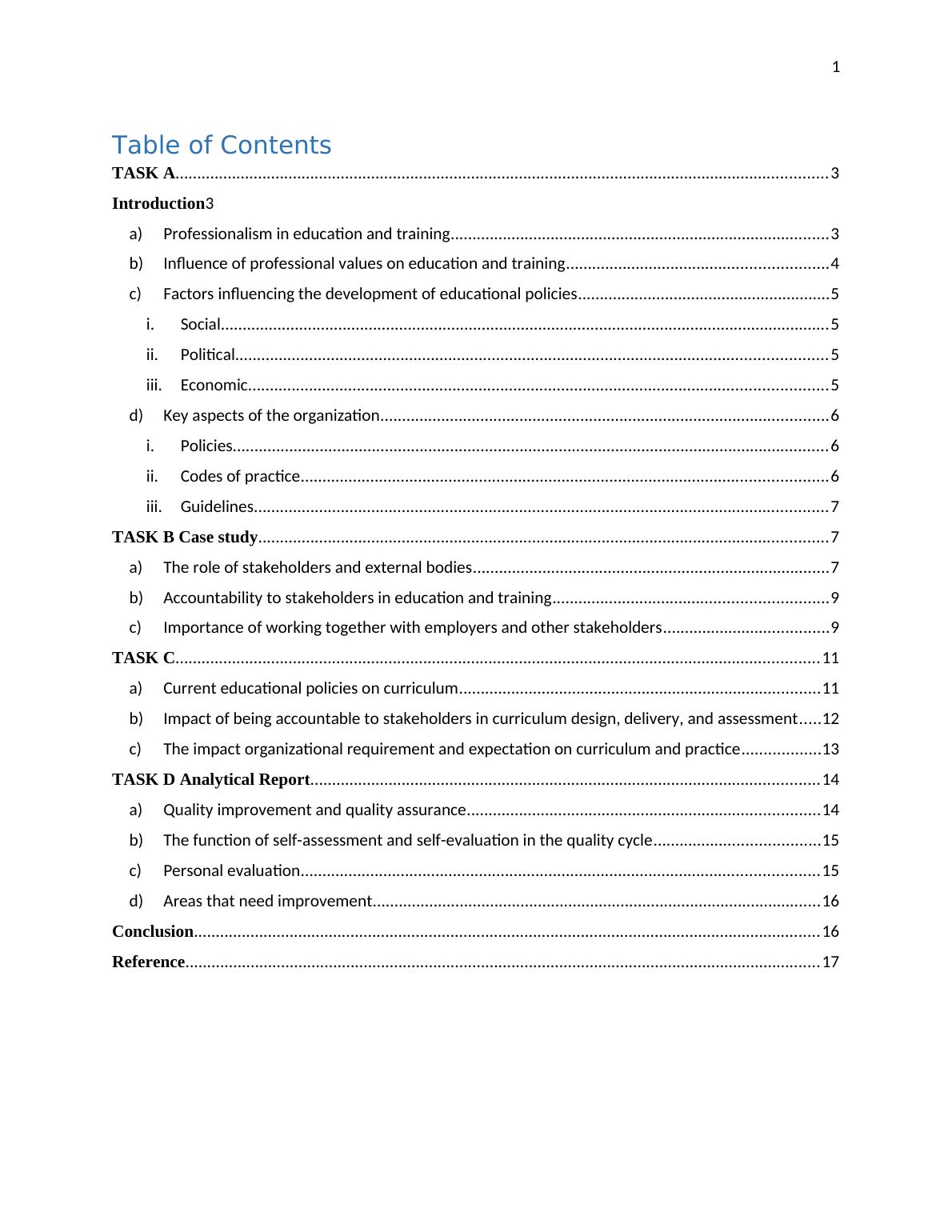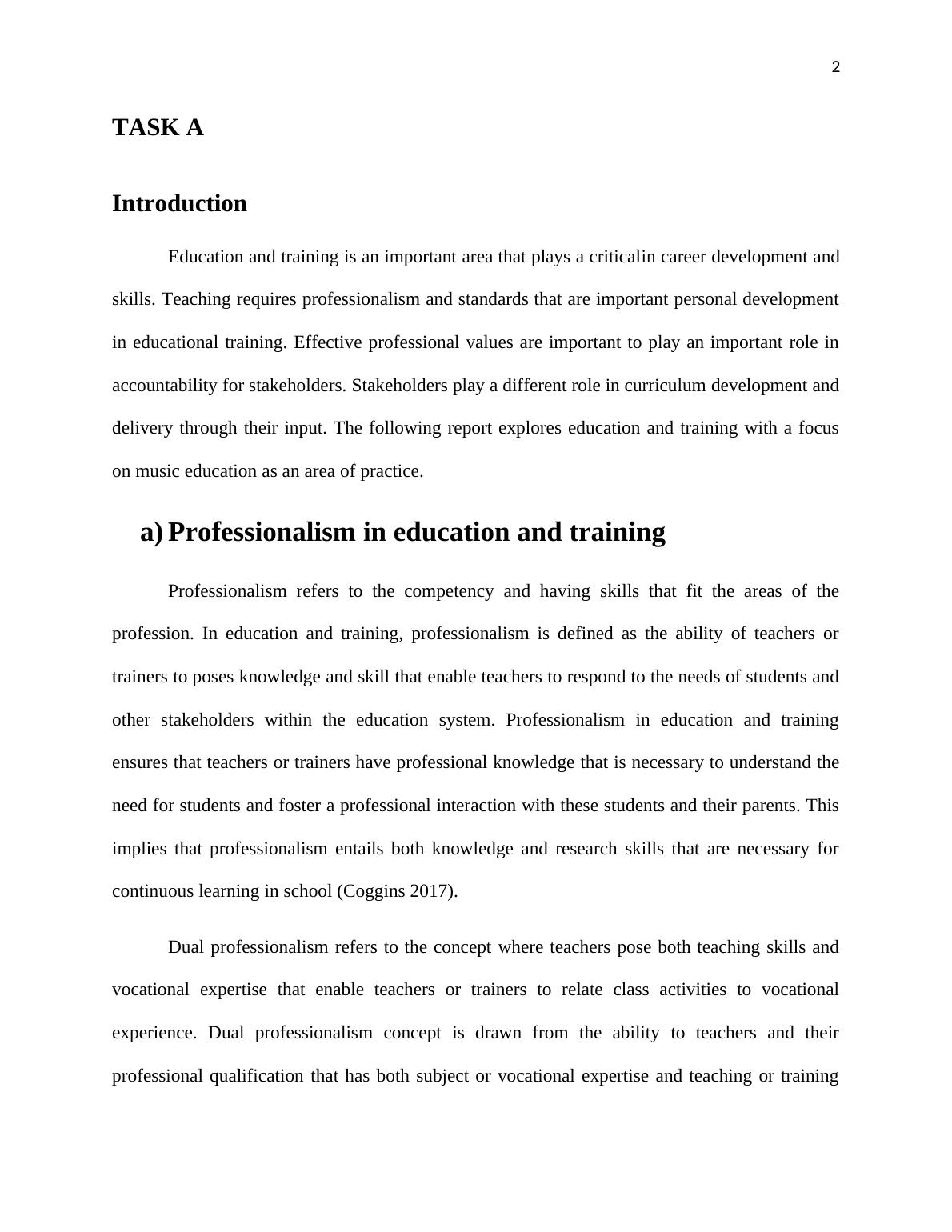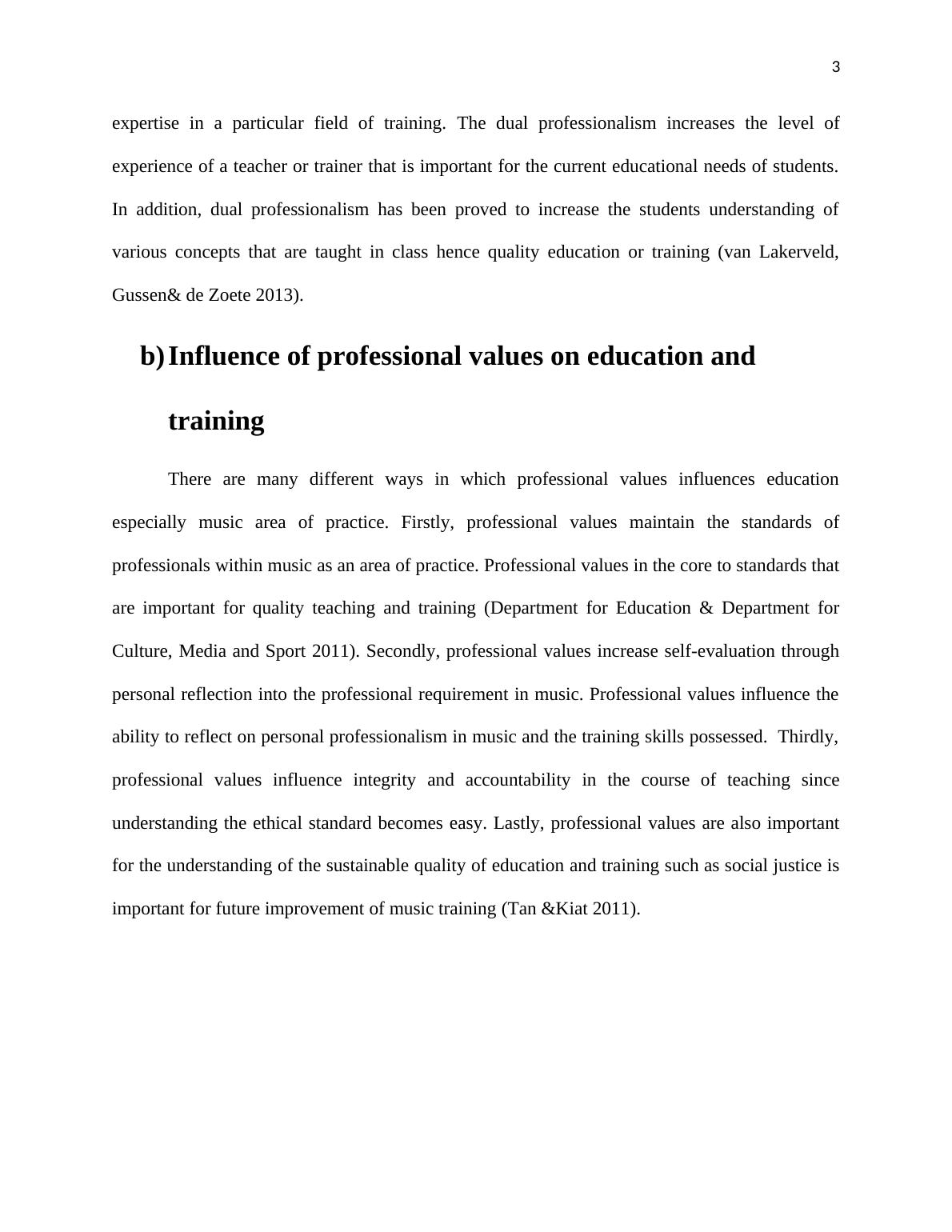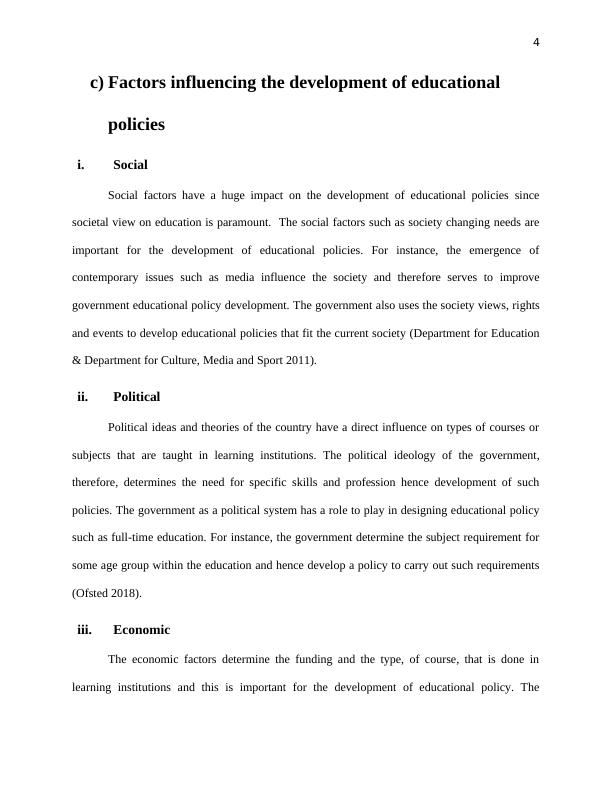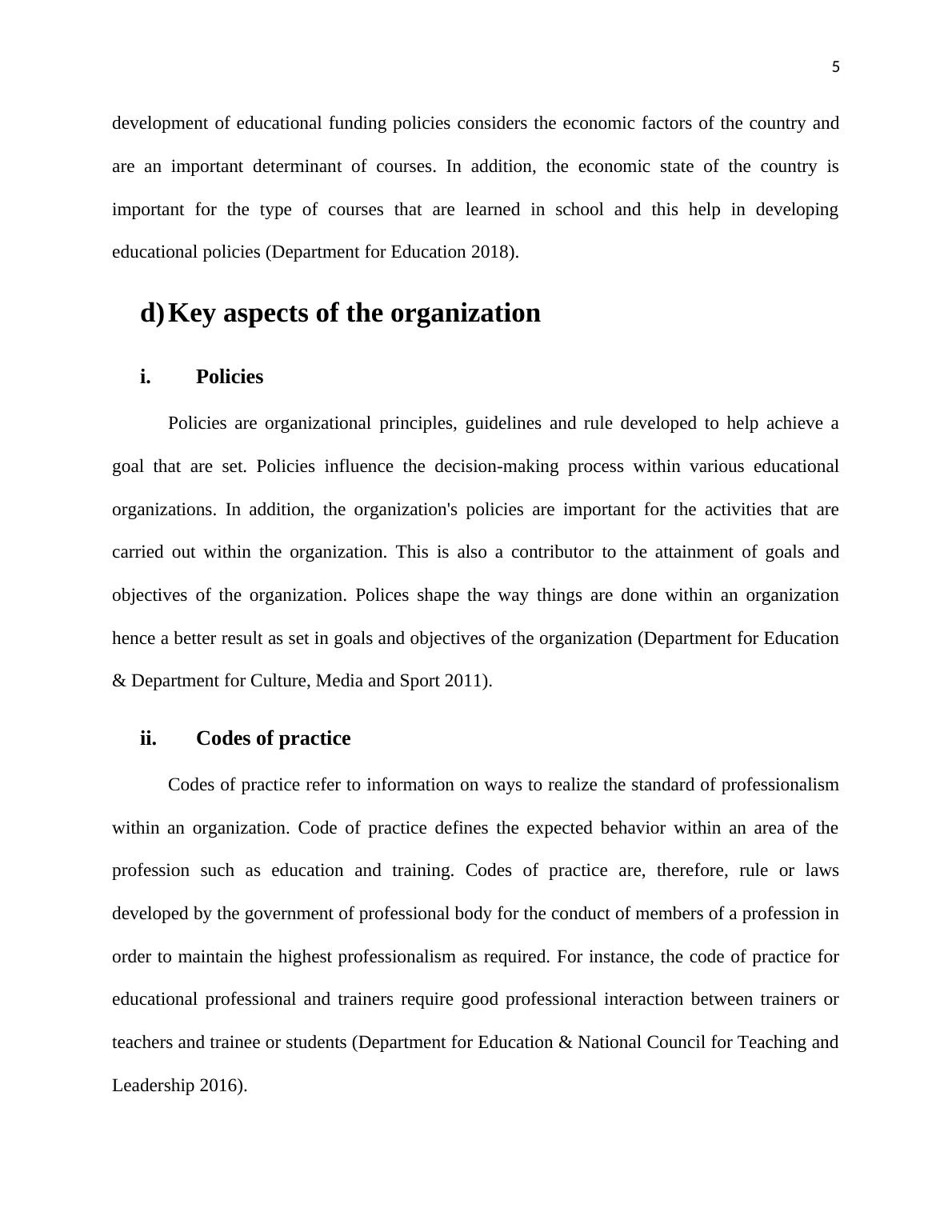The role of stakeholders and external bodies
Analytical report on professionalism in education and training, influence of professional values, factors influencing educational policies, key aspects of the organization, role of stakeholders, accountability to stakeholders, importance of working with employers and stakeholders, current educational policies on curriculum, impact of accountability on curriculum design and assessment, impact of organizational requirements on curriculum and practice, quality improvement and quality assurance, function of self-assessment and self-evaluation, personal evaluation, areas for improvement.
Added on 2022-09-16
The role of stakeholders and external bodies
Analytical report on professionalism in education and training, influence of professional values, factors influencing educational policies, key aspects of the organization, role of stakeholders, accountability to stakeholders, importance of working with employers and stakeholders, current educational policies on curriculum, impact of accountability on curriculum design and assessment, impact of organizational requirements on curriculum and practice, quality improvement and quality assurance, function of self-assessment and self-evaluation, personal evaluation, areas for improvement.
Added on 2022-09-16
End of preview
Want to access all the pages? Upload your documents or become a member.

